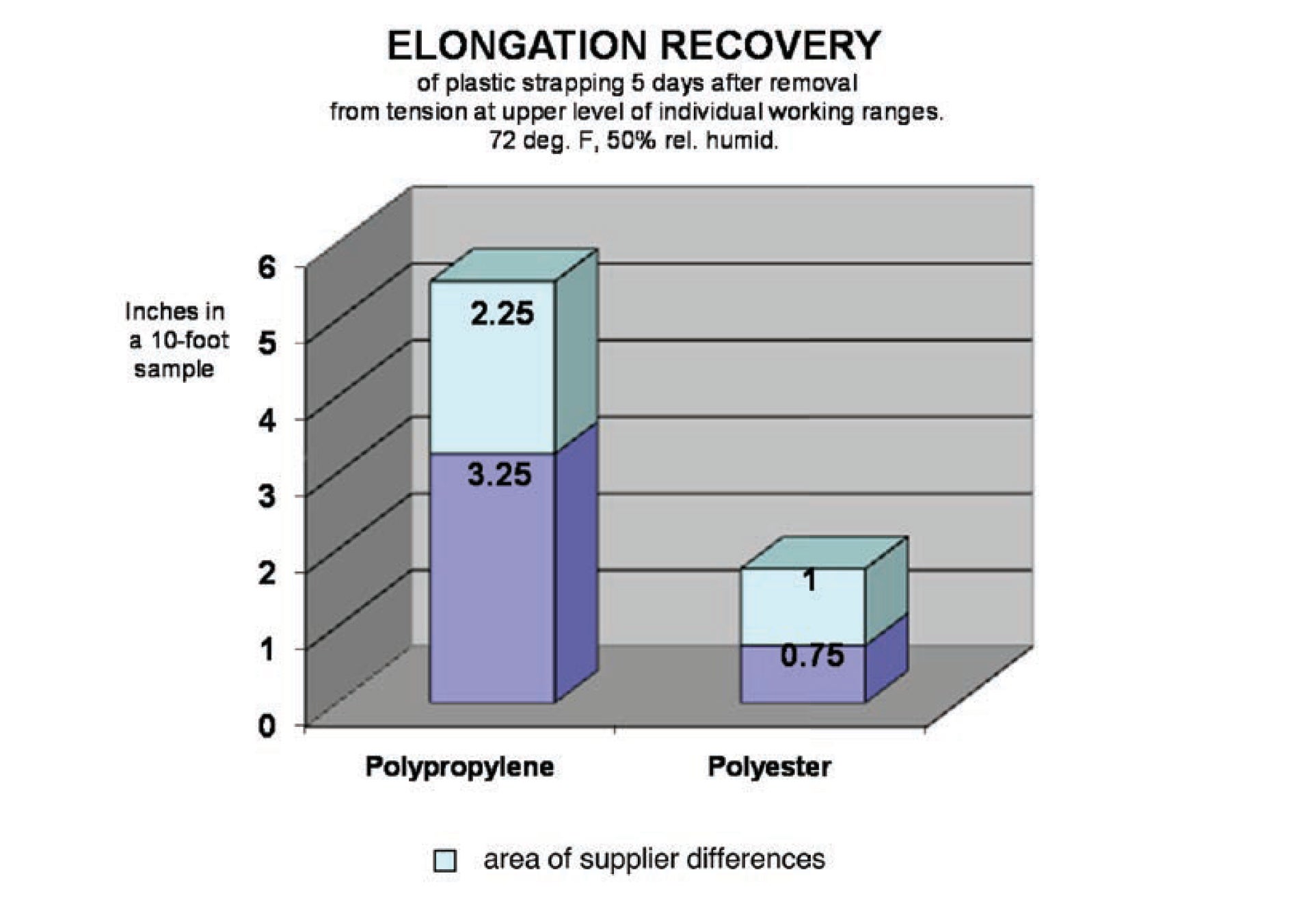
Elongation Recovery is an important characteristic of strapping to consider when choosing the correct strap.
Elongation- the lengthening of something.
Recovery- a return to a normal state of health, mind, or strength.
Vibration, handling, time, temperature and humidity cause some types of packages and unit-loads to shrink or settle quite a lot. Others shrink or settle to a lesser degree. All plastic strapping materials elongate under tension and seek to recover a part of the elongation as stress is relieved. In contrast to the plastic materials, steel strapping elongates a negligible amount, but has 100% recovery below the yield point. However, the plastic materials vary widely in their capacity to elongate and recover. Let's take a look at how elongation recovery differs between different plastic types.
Let's demonstrate!
We pulled plastic strapping on a rigid test rack to the upper levels of the working ranges—300 pounds for polyester, 800 pounds for high-strength polyester and 200 pounds for polypropylene. The rack testing method is designed to eliminate variables. The tests were run on strapping samples upon which sections 10 inches long had been marked off. After reaching tensions at the upper levels of their working ranges, they were measured for length and left under tension for 5 days.
Finally, the samples were removed, allowed 5 days of “rest,” and again measured for length. The data in the graphs have been extrapolated so that the 10-inch samples are treated as if they were 10 feet long. The 2nd measure, it was felt, offers an appropriate compromise between the 3-foot length of strapping that might go around a small package and the 25-foot strap that might go around a large unit-load.


Polyester strapping’s elongation recovery will be approximately 70%. Poly strapping's elongation recovery is 20 to 40% depending on initial retained tension. We have examined the relationships that appear between the plastic materials when each is tensioned to the upper level of its own working range. What happens when the materials are tensioned to a common level of 200 lbs.? Interestingly, the relationships remain similar.
3 questions to ask when choosing plastic strapping:
- How much elongation recovery appears to be required? This is important on shrinking loads.
- How much tension can be pulled on the strap without damaging the product?
- How much retained tension loss (creep) is allowed?
Where a modest amount of elongation recovery will suffice, and the package can take about 300 lbs. of tension, polyester would be a more economical choice. If your business needs all the elongation recovery they can get at about 200 lbs. tension, Polypropylene ranks first, polyester second. Please note that while Elongation Recovery is important, maintaining packaging integrity is often due to high levels of Retained Tension. When the package simply cannot take much tension, polypropylene offers the most elongation recovery for the money. Humidity has no effect on the elongation recovery of polyester or polypropylene strapping. Temperature has an adverse effect on all plastic strapping, but to the greatest degree on polypropylene.






